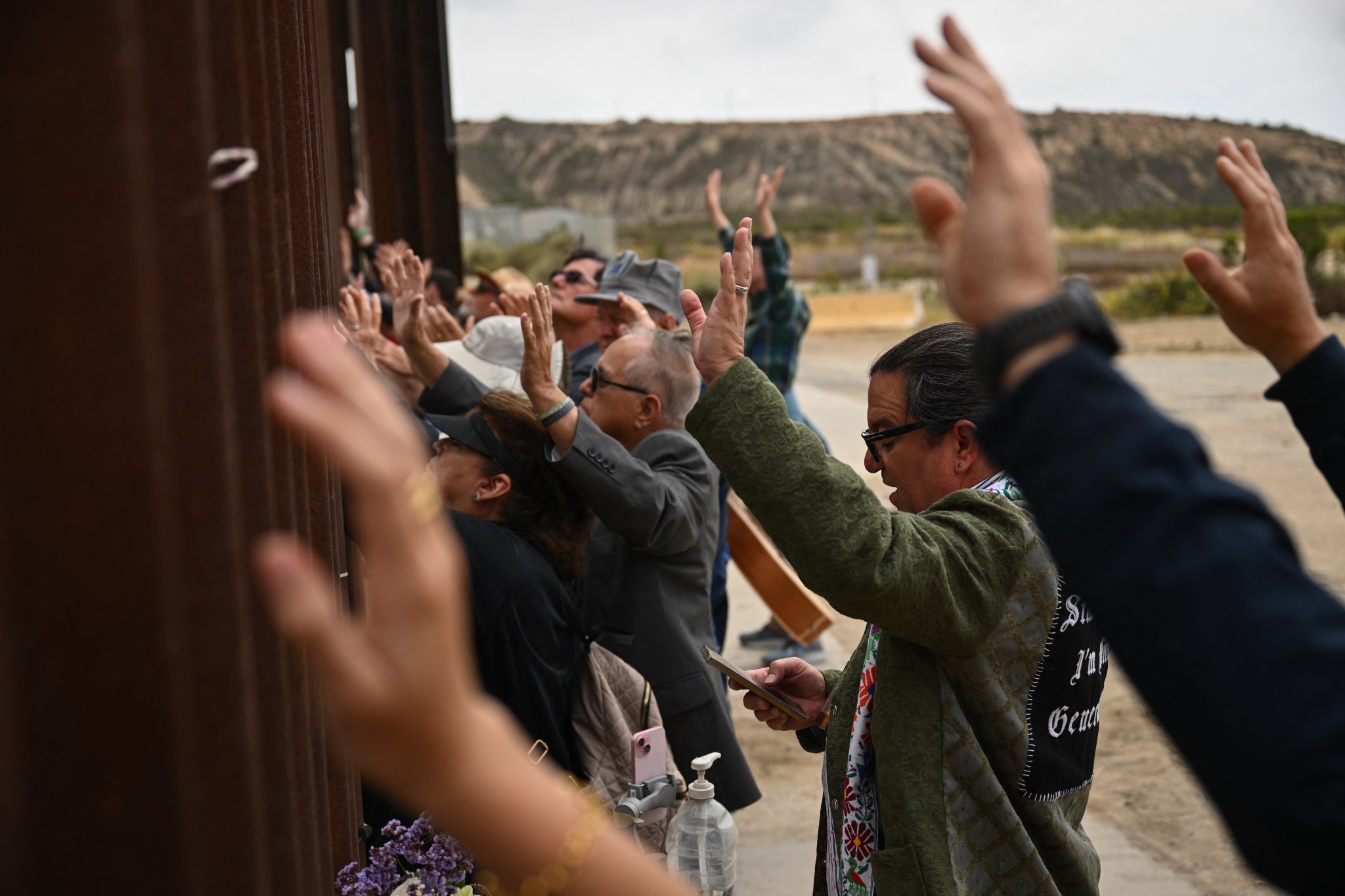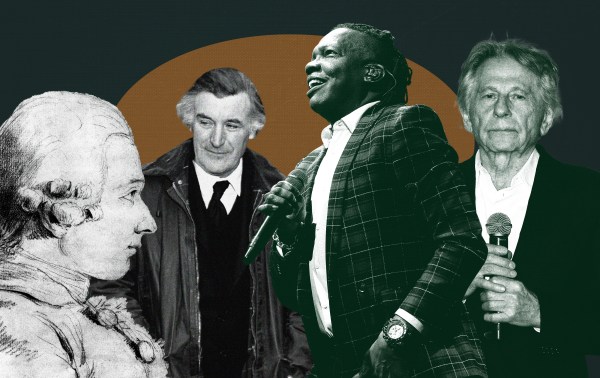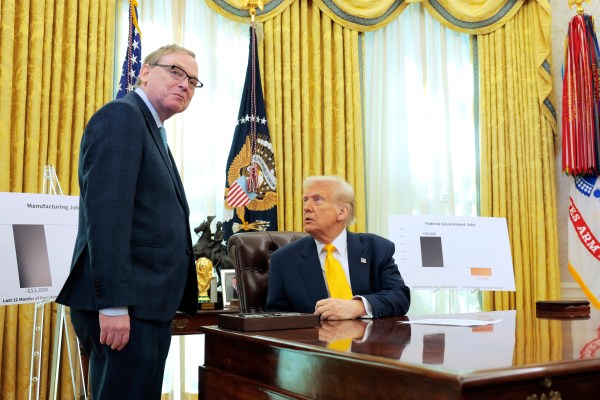Hi and happy Sunday—I hope your Memorial Day observances this week were meaningful and full of gratitude.
We’re back this week as Pope Leo XIV closes in on one month as head of the Catholic Church. Now that the world has heard his words in homilies and public addresses, what can we discern about what may come in his pontificate?
Scholar John C. Pinheiro offers some takeaways in today’s newsletter while cautioning against drawing too many conclusions yet.
John C. Pinheiro: What Can We Learn From Pope Leo XIV’s First Few Weeks?

As soon as Pope Leo XIV’s papacy began on May 8, so did the spin. Progressives tried to own Leo as a social justice warrior while some conservatives immediately used other hints to further the church-in-crisis mentality they had honed during the reign of Pope Francis.
Now that we are a few weeks into his papacy, it is a good moment to pause and ask: What do we actually know about Leo XIV and the direction of his pontificate? The truth is, not much yet. If the ancient Greeks were correct, knowing that there are things we don’t know is the first step toward wisdom and understanding.
Currently, the prophets of doom are juxtaposed with the prophets of high praise, and each can be found on the platform formerly known as Twitter. But the truth is, nobody really knows the path Leo XIV’s papacy will take, except for the Chicago-born pope himself. Indeed, the only thing we know with certainty is that he will remain a White Sox fan.
We can, however, look at his own words and actions thus far and conclude that Leo is a confident and careful spiritual leader who is aware of the role the Holy See (i.e., “the Vatican”) can play on the world stage. But he is also equally aware that the Catholic Church’s primary mission is evangelization. And if the church is to be able to evangelize at all, it must heal the divisions that have grown since the Second Vatican Council but particularly during the pontificate of Pope Francis.
When Cardinal Robert Prevost was elected, he could have chosen the name John Paul III or Francis II. Choosing “John Paul” would have sent one signal, “Francis” another. But Leo XIII, who is best known for his commentary on economic matters, labor, and capitalism, is a surprisingly unifying figure among Catholics. The choice by Cardinal Prevost to take the name “Leo” implies a studied intention to be a unifying figure. Progressives tend to think of Leo XIII as the start of their own conception of social justice, which sees the social welfare state as the best means of alleviating material poverty. Idiosyncratic traditionalists tend to see in him economic dogma for a “third way” between socialism and capitalism, known as “distributism.” As it turns out, Catholics who have a positive view of rightly ordered market economies also have much to admire in the pontificate of Leo XIII.
We can also use Leo XIV’s own words to explain the choice of his papal name. He told the College of Cardinals that he chose “Leo” “mainly because Pope Leo XIII in his historical encyclical Rerum Novarum in 1891 addressed the social question in the context of the first great industrial revolution. In our day, the church offers to everyone the treasury of her social teaching in response to another industrial revolution and to developments in the field of artificial intelligence that pose new challenges for the defense of human dignity, justice, and labor.”
Pope Leo XIII, who wrote dozens of encyclical letters to Catholics and revived Thomistic thought as the chief means of addressing the challenges of the modern, industrial world, launched modern Catholic social teaching with Rerum Novarum. Leo wanted to address problems with the exploitation of working people as socialism was being proposed by many as the best, even most Christian, solution to the problem. But Rerum Novarum spent considerable space condemning state socialism as intrinsically unjust, inhumane, and harmful to working people, because it took away the fruits of their labors and gave them to the state. Leo XIII said socialism was based on envy. “The right of private property,” he wrote, “must be held sacred.”
When John Paul II wrote Centesimus Annus in 1991 to observe the 100th anniversary of Rerum Novarum, he noted that the primary failure of socialism was not economic, but anthropological. “Marxism had promised to uproot the need for God from the human heart,” but it had failed. Socialism’s chief anthropological flaw was that it saw human persons not as individual persons but as atoms in a collective.
John Paul also returned to the questions about capitalism that Leo XIII first posed in 1891 and that subsequent popes and the Second Vatican Council had dwelled on as they developed the core principles of Catholic social teaching: human dignity, subsidiarity, solidarity, and justice. Could Catholics support “capitalism”? John Paul answered in Centesimus Annus:
If by “capitalism” is meant an economic system which recognizes the fundamental and positive role of business, the market, private property, and the resulting responsibility of the means of production, as well as free human creativity in the economic sector, then the answer is certainly in the affirmative, even though it would perhaps be more appropriate to speak of a “business economy,” “market economy,” or simply “free economy.” But if by “capitalism” is meant a system in which freedom in the economic sector is not circumscribed within a strong juridical framework which places it at the service of human freedom in its totality … then the reply is certainly negative.
One of Leo XIV’s first addresses as pope came on May 17 to the Centesimus Annus Pro Pontifice Foundation, whose mission is to study and promote Catholic social doctrine, especially as laid out in Centesimus Annus.
The American pope confirmed the emphasis of Leo XIII and John Paul II on the prudential application of core principles rather than ideology when addressing social challenges. “The church’s social doctrine, with its specific anthropological approach, seeks to encourage genuine engagement with social issues,” Leo XIV said. “It does not claim to possess a monopoly on truth, either in its analysis of problems or its proposal of concrete solutions.”
Knowing how to approach social problems, Leo XIV said, “is more important than providing immediate response to why things happen or how to deal with them.” These are the words of a man who values temperance and clarity, and who seems to know the difference between a historically conditioned and contextualized statement of foundational principles and the prudential application of the same. Social, political, and economic conditions change, and the words of popes must be read in this way. The Catholic Church does not prescribe a single economic or political system but rather proposes moral principles that are to be applied in different contexts and situations.
For example, the church has no ancient tradition about Artificial Intelligence because Artificial Intelligence is not ancient. But the church does have centuries-old thinking about the dignity of the human person, theft, and technology.
How we might apply these principles, developed over the centuries, to the questions of today are precisely what Leo XIV is referring to. And this takes questioning and research. Thus, Leo XIV argues that, “doctrine is not the same as opinion.” Indeed, it is doctrine, as the fruit of “a common, collective and even multidisciplinary pursuit of truth,” that helps us to make “prudential judgments when confronted with challenges.”
Opinion has in common with ideology an inability to help us make good prudential choices, because neither is rooted in a genuine pursuit of truth. As Leo XIV wrote prior to becoming pope in a foreword to a book on social doctrine, “Every ideology, no matter how perfect it may seem, ends up turning against the human person.” Ideologies are one-size-fits-all theories of human life that take one insight and transform it into the only insight. This is meant to comfort us the way a conspiracy theory does by simplifying the complexity of the world. The ideologue has no need to pursue truth any further because he has a simple lens through which to view the complexity of life. This is why Karl Marx said we no longer need to ask any questions.
Leo is saying that doctrine is not ideology. Neither is it opinion or what one feels. “Seriousness, rigor, and serenity are what we must learn from every doctrine,” Leo told the Centesimus Annus Foundation last month, “including the church’s social doctrine.” This sense of clarity about what the Catholic Church teaches goes hand-in-hand with the fact that, thus far, Leo XIV reads from well-prepared notes when he speaks publicly. Despite being an American, he does not shoot from the hip.
We can learn a few things from Leo’s actions as well. Merely by choosing to wear the red shoulder cape known as the mozzetta and chanting in Latin, Leo from his earliest appearances differentiates himself from Pope Francis, who did neither of these things. But again, what does this really tell us? Is this a via media, a return to tradition, or what?
Lastly, among the things we still don’t know are where Pope Leo XIV will live. His choice is fraught with symbolism. For example, last week Leo visited Castel Gandolfo, the town of about 9,000 residents in the hills just south of Rome. Popes have vacationed there in a palace on lands under the jurisdiction of the Holy See (not the Italian government) since the 1600s. Likewise, Leo visited and unlocked the apostolic palace above St. Peter’s Square, which had been unused since 2013. But will he live there ? Will he spend his summers at Castel Gandolfo? We don’t know.
Pope Francis did not live in the apostolic palace, leaving the lights of the papal apartment above St. Peter’s Square dark at night from 2013 until his death this year. Looking up from the piazza, one had to wonder: Was the pope at home or not? Francis instead lived in the relatively new hotel designed for cardinals, the Casa Santa Marta. Many interpreted this as a sign of humility, even though the actual papal apartment is quite modest. Pope Francis also did not like to take vacations, so he never spent his summers at Castel Gandolfo. He did, however, turn part of it into a sustainability garden and museum once he realized how much damage he had done to the local economy by not staying there.
If Leo vacations at Castel Gandolfo, does this mean he is repudiating Francis? Similarly, if he lives in the palace and Romans once again get to look up and see the lights on, does this mean Leo is not as humble as Francis? Interestingly, no one seems to ask whether Francis repudiated past popes by not staying at the palace or Castel Gandolfo.
One thing is certain: Leo is aware of these questions or else he would have already moved in, although one imagines the papal apartment might need some work after being shuttered for 12 years.
Of course it is not just vestments and domiciles that divide Catholics in the year 2025. In the wake of the Second Vatican Council some 60 years ago, some Catholics have rejected the council. In the name of a malleable “spirit of Vatican II,” there have been a string of liturgical abuses and moral squashiness that pushed some Catholics to leave the church. Meanwhile, some critics have blamed the council on the decline in priestly vocations and the numbers of men and women in religious orders. There were others, though, who said Vatican II had fundamentally altered the church for the better. Pro or con, these folks spoke of a “pre-Vatican II church” and a “post-Vatican II church.” Pope Benedict XVI referred to both these views as part of a “hermeneutic of discontinuity and rupture.” He proposed instead a hermeneutic of continuity, an interpretation of the council in keeping with the long tradition and magisterium of the Catholic Church, one that emphasizes the texts produced at the council rather than things done in the name of an amorphous “spirit of Vatican II.”
The hermeneutic of rupture returned during Pope Francis’ pontificate, as German bishops proposed changes to Catholic moral doctrine on sexuality and marriage and African bishops rejected Vatican decrees on the same. It seemed the Catholic Church was indeed at a pivot point.
The first days of the pontificate of Pope Leo XIV reveal him, however, to be an embodiment of the hermeneutic of continuity, in word and in deed. Whether this means we are in for a via media that makes everyone unhappy or a new pivot point in what Pope John Paul II called the “new evangelization,” time will tell.
More Sunday Reads
- On May 21, moral philosopher Alasdair MacIntyre, most well known for his 1981 book After Virtue, died at age 96. For Law & Liberty, Rachel Lu remembers her former Notre Dame professor. “MacIntyre set young minds ablaze, instilling a sincere zeal to join the quest for wisdom and the Good. But he also gave us reason to think that our odds of finding it were bleak. Morality is learned in the context of cohesive communities. How many of those do we have nowadays? His lectures were filled with references to fishing crews, small hamlets, religious orders, and other exemplars of the types of communities he thought human beings needed to thrive. After a while, one started to wonder: Must I become a fisherman or a nun to lead a good life? Clearly, modernity was fundamentally ill. Virtue was the cure. But we benighted moderns were hard-pressed even to understand what virtue meant, so what was to be done?” Commenting on criticisms of MacIntyre—a late-in-life Catholic convert who never gave up his previous disdain for capitalism and modernity—Lu writes: “Even when he was tweaking and needling people (questioning the existence of “rights” or throwing poxes on all political parties), there was a kind of Socratic impishness to MacIntyre’s style, consistent with the goal of trying to help people see how little they really knew. It occurs to me, too, that it’s fairly common to meet people who publicly ally themselves with Christians for dialectical or political purposes, while finding it difficult to make the trek all the way to the altar rail. MacIntyre had the opposite priorities. Good for him.”
- For Arc magazine, Gabby Deutch profiles an idiosyncratic pastor of a small Congregational church in northwest Connecticut: Peter Oliveira, who was raised Seventh-day Adventist, became a Jewish rabbi, and now considers himself a Messianic Jew. And he is adored by his congregation. “First Congregational Church of Litchfield was founded in 1721. It was a recruitment center for George Washington’s army during the Revolution. Less than a century later, its most famous pastor, Lyman Beecher, Harriet Beecher Stowe’s father, advocated from its pulpit for the abolition of slavery. This was a storied place, but lifers feared its story might soon end. By 2019, the church was in the midst of a steep decline. Worshippers were not coming; coffers were not being filled. That’s when the leadership asked Rabbi Peter if he’d consider becoming the pastor. He was already leading a Saturday Shabbat service inside the church as part of his messianic congregation, called Mishkahn Nachamu. ‘I said, “I’m not a pastor,”’ Rabbi Peter recounted over lunch, after the Sunday service in January ended, and the baby goat was safely returned to its owner. He washed down his steak frites with an old fashioned. ‘They just kept asking.’ Eventually, he said yes.” Deutch pressed him on the tension of considering himself Jewish and Christian: “‘All Jews, in essence, are messianic,’ Rabbi Peter said cheekily. ‘We may not all agree on who the messiah is.’ He is well aware of the negative connotations of Jews for Jesus, the branch of Messianic Judaism popular in the 1970s and 1980s that was generally considered to be Christian proselytizing in disguise. He insists that his form of Messianic Judaism, which is not connected to any larger organization or movement, is not that. There’s no hidden agenda, he promises. ‘I do not support in any way people trying to proselytize and convert people. I feel that our call is to awaken, not convert.’”
Religion in an Image










Please note that we at The Dispatch hold ourselves, our work, and our commenters to a higher standard than other places on the internet. We welcome comments that foster genuine debate or discussion—including comments critical of us or our work—but responses that include ad hominem attacks on fellow Dispatch members or are intended to stoke fear and anger may be moderated.
With your membership, you only have the ability to comment on The Morning Dispatch articles. Consider upgrading to join the conversation everywhere.